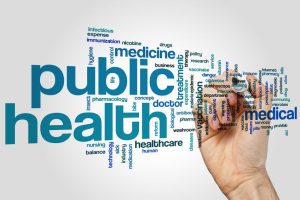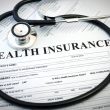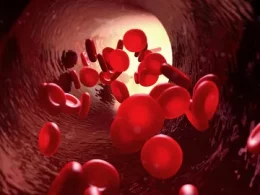In the landscape of American life, the intersection of personal health and economic stability has emerged as a critical crossroad, defining the access to and quality of healthcare for millions. As the nation grapples with this intricate junction, a myriad of challenges and opportunities unfolds, shaping the trajectory of individuals, families, and communities nationwide.
The Complex Relationship: Health and Economy

Healthcare is not just a matter of physical well-being; it’s a cornerstone of economic stability. In America, where healthcare costs consistently rank among the highest in the world, individuals are confronted with a daunting reality: the fear of illness not only jeopardizes health but also financial security.
A sudden medical emergency can swiftly derail the financial stability of even the most prepared households. High deductibles, co-payments, and out-of-pocket expenses create a barrier to care, forcing many to choose between seeking treatment and enduring financial strain. This precarious balance amplifies the vulnerability of those already grappling with socioeconomic disparities, exacerbating inequalities in health outcomes and economic prosperity.
The Pandemic’s Impact: Unveiling Fragilities
The COVID-19 pandemic laid bare the fragile nature of America’s healthcare system, exposing systemic weaknesses and disparities that have long plagued the nation. From inadequate access to testing and treatment to the disproportionate impact on marginalized communities, the pandemic underscored the urgent need for reform.
Job losses triggered by economic shutdowns further exacerbated the healthcare crisis, stripping millions of Americans of employer-sponsored health insurance precisely when they needed it most. As unemployment rates soared, the ranks of the uninsured swelled, highlighting the inherent link between employment and healthcare access in the United States.
Navigating Forward: Pathways to Reform
Amidst these challenges, calls for healthcare reform have grown louder, advocating for policies that prioritize universal access, affordability, and equity. Proposals such as Medicare for All and public option plans aim to expand coverage and reduce costs, offering a potential lifeline for those ensnared in the complex web of healthcare and economic instability.
However, navigating the path to reform remains fraught with political and ideological divisions, with entrenched interests often impeding progress. Yet, amidst the discord, glimpses of bipartisan cooperation and grassroots movements signal a nascent hope for change, fueled by the collective realization that healthcare is not a privilege but a fundamental human right.
Conclusion: Toward a Healthier, More Equitable Future
As America stands at the crossroads of personal health and economic stability, the choices made today will reverberate for generations to come. By confronting the intersecting challenges with courage, compassion, and innovation, the nation has an opportunity to forge a path toward a healthier, more equitable future—one where access to quality healthcare is not contingent upon wealth or privilege but is recognized as a fundamental pillar of societal well-being.
In the crucible of this defining moment, the true measure of America’s character lies not in its wealth or power but in its commitment to ensuring that every individual, regardless of circumstance, can navigate the journey of life with dignity, security, and hope.












